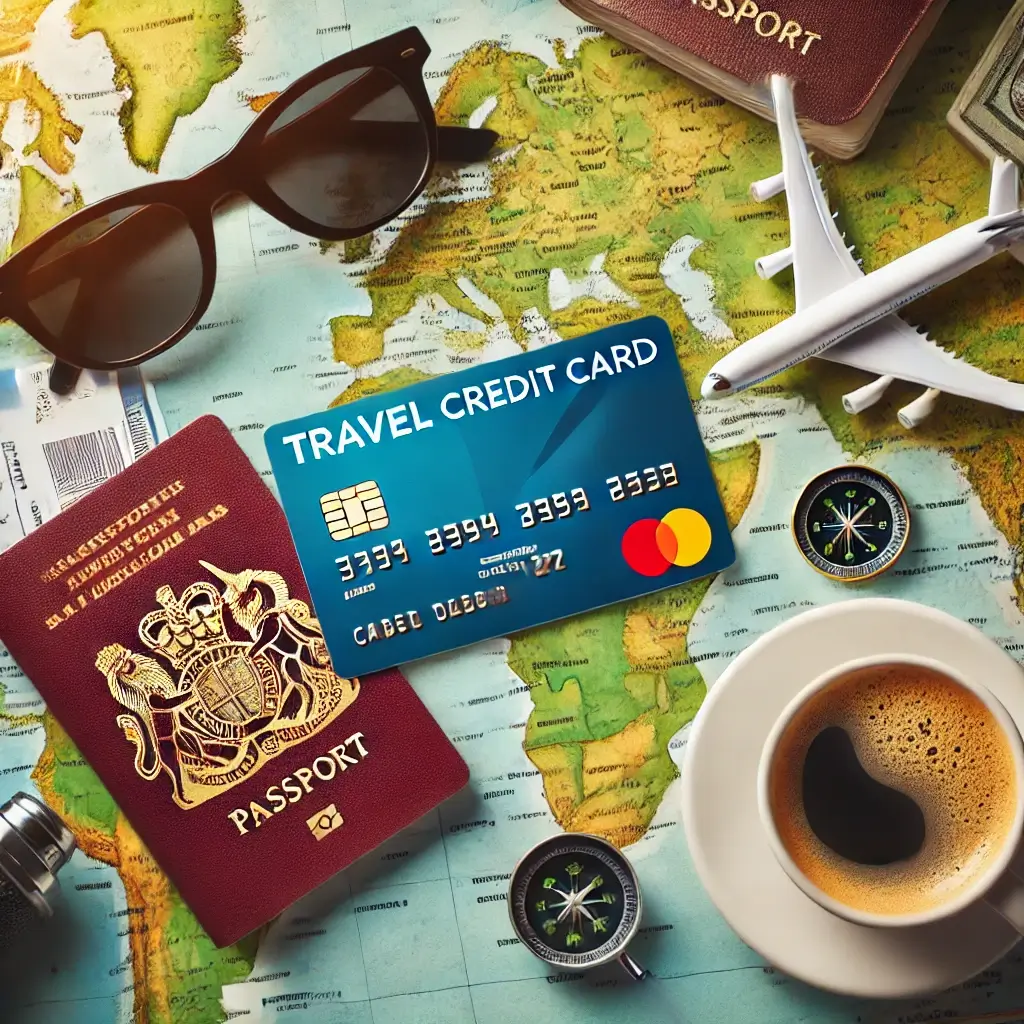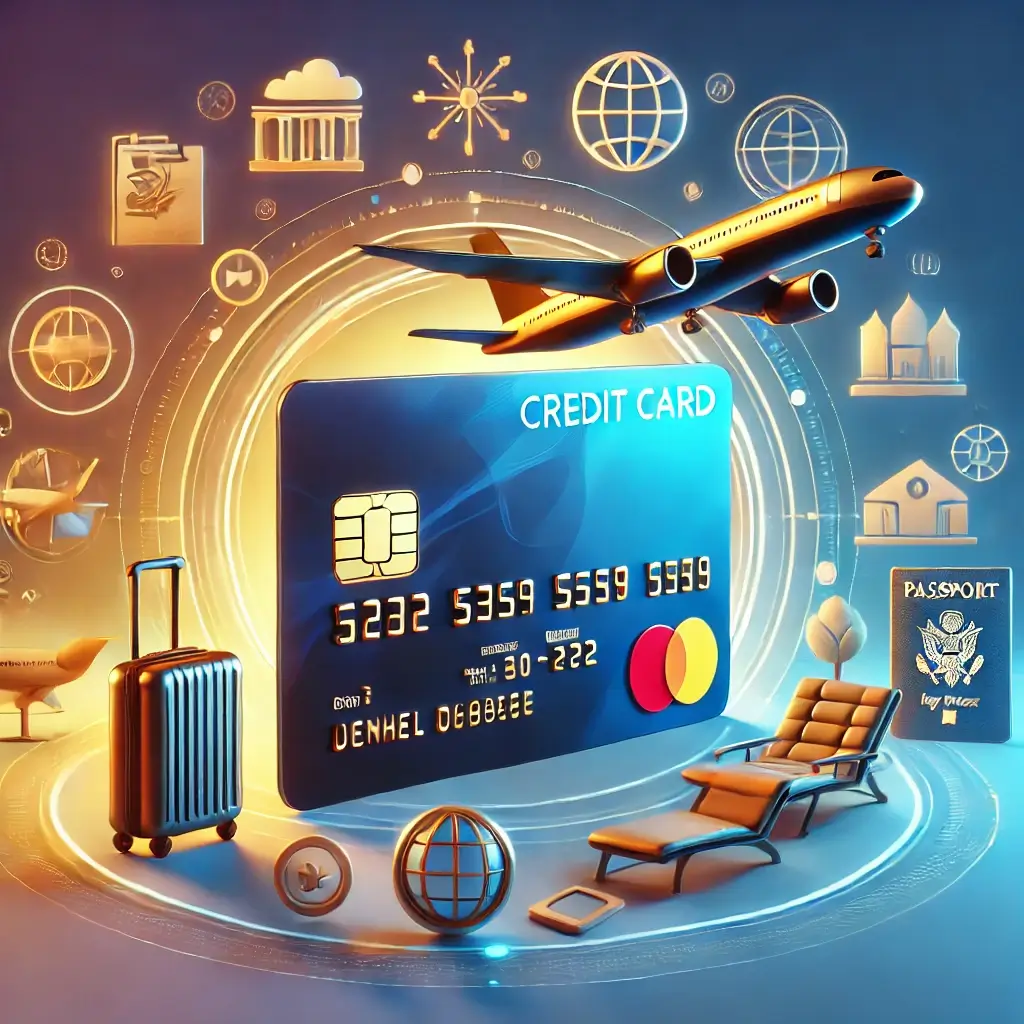Travel credit cards are specialized financial tools designed to enhance the travel experience by offering rewards, benefits, and perks tailored for globetrotters. These cards typically provide points or miles for every dollar spent, which can be redeemed for flights, hotel stays, and other travel-related expenses.
In addition to earning rewards, many travel credit cards offer features such as no foreign transaction fees, travel insurance, and access to airport lounges, making them invaluable for frequent travelers. By strategically using these cards, individuals can maximize their travel budget and enjoy a more luxurious journey while building their credit history.
Before using any travel credit cards, it’s essential to learn about budget travel secrets.
Unlock Free Travel with the Right Credit Cards
“Imagine flying to Paris for $0—just by using the right travel credit card for your daily spending.”
Travel credit cards are the secret weapon of savvy travelers. They turn routine purchases into free flights and luxury perks. In fact, the average rewards cardholder earns 2+ free flights yearly through strategic spending.
Why Travel Credit Cards Deliver Unmatched Value
Unlike regular cards, the best travel credit cards offer:
✈️ Premium rewards (2-5X points on flights, dining, and more)
🎫 Flexible redemption (transfer points to major airlines and hotels)
💳 Sign-up bonuses worth 500 500–1,000+ in travel
Your dream vacation starts here—let’s find your perfect card match.

How Travel Credit Cards Work
Travel credit cards are designed to offer rewards and benefits catering to those who love to travel. When you swipe these cards for your everyday purchases, you rack up points or miles that can be used for various travel-related expenses, like flights, hotel stays, and car rentals. Plus, many travel credit cards come with extra perks, such as travel insurance, no foreign transaction fees, and access to airport lounges, all of which can really enhance your travel experience. To get the most out of these cards, cardholders must hit certain spending targets or take advantage of special promotional offers. By using a travel credit card wisely, you can turn your regular spending into fantastic travel rewards, making your adventures more affordable and enjoyable.
Points vs. Miles vs. Cashback
Not all rewards are created equal. Here’s how they differ:
Airline Miles
- How they work: Earn miles tied to specific airlines (e.g., Delta SkyMiles, United MileagePlus)
- Best for: Loyal customers of one airline
- Redemption: Book flights directly through the airline (blackout dates may apply)
Flexible Points
- How they work: Earn transferable points (e.g., Chase Ultimate Rewards®, Amex Membership Rewards)
- Best for: Travelers who want options (transfer to 10+ airlines/hotels)
- Redemption: Often has a higher value when transferred to partners
Cashback
- How they work: Earn a flat % back on spending (e.g., 2% on all purchases)
- Best for: Those who prefer simplicity over travel perks
Pro Tip: Learn which type best fits your spending style in the Rewards vs. Cashback Guide.
Sign-Up Bonuses (Your Fast Track to Free Flights)
Most travel credit cards offer lucrative bonuses for new cardholders:
How to Meet Minimum Spend Requirements
- Example: “Spend $4,000 in 3 months to earn 60,000 points”
- Smart strategies:
- Put everyday expenses on the card (groceries, bills)
- Prepay subscriptions or insurance
- Use for planned big purchases (e.g., furniture, electronics)
Typical Bonus Value
- 50,000–100,000 points = 500–500–1,000+ in flights
- Airline cards: Often include companion tickets or free checked bags
Warning: Bonuses aren’t free money—always pay your balance in full to avoid interest.it card that aligns with your needs, whether it’s flexibility, affordability, or premium perks, you can elevate your travel experience and maximize the value of your spending.
Best Travel Credit Cards for Free Flights
Choosing the right travel credit card depends on how you fly. Here are the top picks of these cards:
1. Best for Frequent Flyers
Chase Sapphire Preferred®
- 60k bonus points after 4kspendin3months(≈4kspendin3months(≈750 in flights via Chase Ultimate Rewards®)
- 2X points on travel and dining
- 25% bonus when redeeming through Chase Travel
Delta SkyMiles® Gold
- Free checked bag on Delta flights (saves $30+/trip)
- Companion certificate annually after renewal
- Priority boarding and discounted lounge access
2. Best for Flexible Travel
Capital One Venture Rewards
- 75k miles after $4k spend in 3 months
- 2X miles on every purchase
- Transfer partners: 15+ airlines, including Air Canada and Emirates
3. Best No-Annual-Fee Card
Bank of America® Travel Rewards
- 1.5X points on all spending
- No foreign transaction fees
- 25,000-point bonus after $1k spend in 90 days
Pro Tip: Pair airline cards with flexible-point cards to maximize rewards.

Maximizing Your Travel Rewards
1. Everyday Spending Hacks
Use Cards for Bonus Categories
- Groceries: Earn 3x–5x points (e.g., Amex Gold)
- Gas & Transit: 3x points (e.g., Chase Freedom Flex®)
- Bills & Subscriptions: Set up autopay on your card
Stack with Shopping Portals
- Rakuten, AAdvantage eShopping: Earn extra points (2–10x) when shopping through their links
- Example: Buy a $200 hotel stay through a portal, earn 1,000+ bonus points
2. Advanced Strategies
Combine Points from Multiple Cards
- Transfer points from Chase, Amex, or Citi to shared airline partners
- Example: Pool Chase Ultimate Rewards® with a spouse’s points for a free business-class ticket
Book During Airline Sales
- “Points Promotions”: Airlines like United often offer a 20–50% discount on award flights
- Off-Peak Travel: Redeem fewer points for flights in shoulder seasons
Pro Tip: Always check transfer bonuses (e.g., 30% more Avios when transferring Amex to British Airways). Whether you’re a frequent flyer or an occasional adventurer, these cards can help you save money, enjoy exclusive perks, and turn your travel dreams into reality. Don’t let myths hold you back from reaping the benefits!
Pitfalls to Avoid With Travel Credit Cards
1. Annual Fees: Know When They’re Worth It
- 95–95–695 fees aren’t automatically bad, but you must:
- Calculate if rewards outweigh costs (e.g., 300 travel credit + lounge access>300 travel credit + lounge access>550 fee)
- Downgrade before renewal if unused
- Best no-fee option: Bank of America® Travel Rewards
2. Foreign Transaction Fees: The Hidden Travel Tax
- 3% fees on most basic cards can add $300+ to international trips
- Always choose $0 fee cards like:
- Chase Sapphire Preferred®
- Capital One Venture
3. Point Expiration: Don’t Lose Hard-Earned Rewards
- Airline miles: Expire after 12-24 months of inactivity
- Bank points: Typically don’t expire (Chase/Amex/Capital One)
- Pro Tip: Make one small purchase/year or transfer points to partners
Bonus Traps to Watch
- Blackout dates: Some airline cards restrict award flights
- Dynamic pricing: Points needed for flights can skyrocket
- Over-churning: Applying for too many cards hurts your credit
Frequently Asked Questions (FAQs)
What’s the difference between points and miles?
Do travel points expire?
Can I use points for flight upgrades?
How much spending equals 1 free flight?
Are travel card annual fees worth it?
What happens to points if I cancel my card?
Conclusion on Travel Credit Cards
Travel credit cards are powerful tools for making your adventures more rewarding and affordable. Using the best travel credit cards, you can earn valuable points or miles, enjoy exclusive perks like lounge access and travel insurance, and significantly cut travel costs. Whether you’re a frequent flyer or an occasional vacationer, the right travel credit card can enhance every aspect of your journey.
To maximize these benefits, evaluate your travel habits, spending patterns, and financial goals. Choosing a card that aligns with your needs ensures you’ll unlock maximum value and create memorable travel experiences.
To control your travel expenses, see our guide How to Reduce Holiday Spending Without Feeling Deprived.
For a general picture of these cards, see our guide Master Credit Cards and Loans.
Don’t wait to start enjoying the rewards and perks of a great travel credit card. Start your journey today with the best travel credit card for your needs!

